Dogs don’t just want food and a place to sleep—they want you. Your time. Your energy. Your love. And when they don’t get what they need, they let you know—sometimes with chewed shoes, sad eyes, or restless pacing at 2 a.m.
Raising a dog isn’t always easy, but it’s wildly rewarding. The secret? Knowing what truly makes them thrive—and what slowly chips away at their joy. T
his guide gives you 11 powerful ways to keep your pup wagging with happiness—and 9 common habits that can do more harm than good. If you want a tail-wagging, face-licking, zoomie-filled life with your dog, this is where it starts.
Interactive Playtime
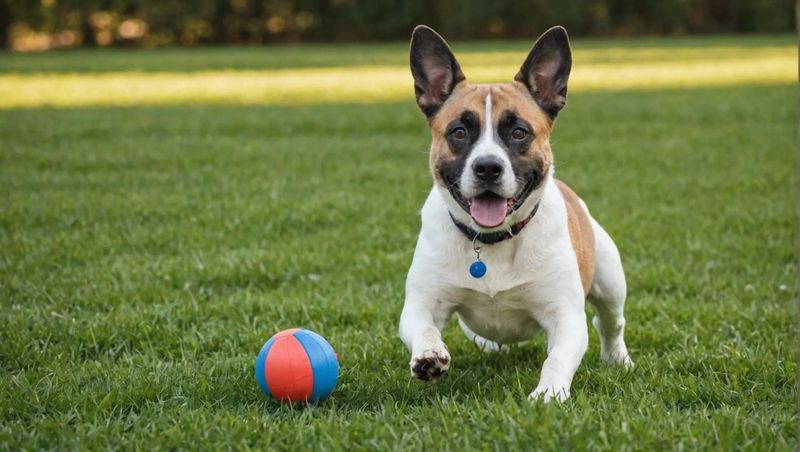
Interactive playtime can transform your dog’s day. Engaging them with toys like puzzle feeders or fetch balls encourages physical and mental exercise. Break the routine by introducing new games regularly. Not only does this prevent boredom, but it also strengthens your bond.
Consider setting aside dedicated playtime each day. Keep toys varied and interesting to maintain enthusiasm. This playful interaction stimulates their minds while keeping them fit.
Remember, playtime is not just about exercise; it’s an opportunity to communicate and deepen trust. Such moments build a joyful, active lifestyle for your furry companion.
Music for Relaxation

Did you know dogs enjoy music too? Soft melodies can calm your pet, reducing stress and anxiety. Choose genres like classical or soft rock; they tend to have a soothing effect.
Prepare a playlist for times when your dog seems anxious, such as during thunderstorms or fireworks. Music therapy can be a powerful tool in creating a serene environment.
By incorporating music, you provide a comforting backdrop to their day. It’s a simple yet effective way to nurture emotional well-being, showing them they are cherished and secure in their home.
Regular Exercise
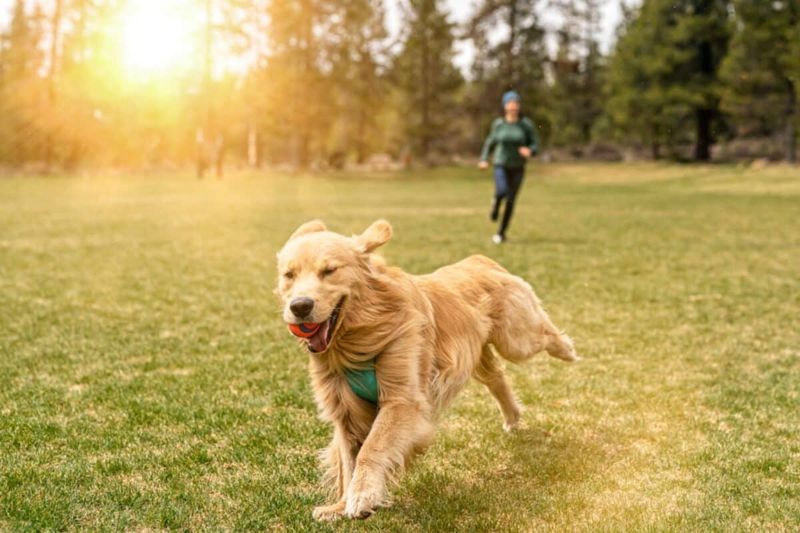
Dogs thrive on movement and play. Regular exercise not only supports their physical health but also alleviates boredom and anxiety. A brisk daily walk or a game of fetch keeps them lively and engaged.
Varied environments offer new scents and sights, stimulating their minds. Whether it’s a romp in the park or a hike in the woods, activity strengthens your bond.
Consider your dog’s breed and age when planning exercise routines. While a young Labrador may enjoy vigorous play, a senior Pug might prefer gentle strolls.
Balanced Diet

Nutrition is vital for a dog’s vitality. A balanced diet tailored to their age, size, and breed ensures they receive essential nutrients.
Choose high-quality dog food that includes protein, fats, and carbohydrates. Fresh vegetables and occasional treats add flavor and diversity.
Monitor portion sizes to prevent obesity and consult your vet for specific dietary needs. A well-fed dog radiates health and happiness, with a shiny coat and bright eyes as clear indicators of good nutrition.
Regular Veterinary Check-Ups

Routine vet visits are key to early disease detection and prevention. Annual exams allow for health monitoring and vaccination updates, ensuring your dog stays protected against common ailments.
A veterinarian can also advise on weight control, dental care, and overall wellness. Regular check-ups provide peace of mind and are an investment in your dog’s long and healthy life.
Building a relationship with your vet fosters trust and communication, ensuring the best care tailored to your dog’s needs.
Quality Sleep

Sleep is essential for a dog’s health, supporting growth, immune function, and mood regulation. Providing a comfortable space, free from noise and distractions, promotes restful sleep.
Consider their size and preferences when choosing a bed. Some dogs love curling up in a den-like bed, while others prefer sprawling on a mat.
Ensure a consistent sleep schedule, respecting their natural rhythms. A well-rested dog is active and cheerful, ready for new adventures each day.
Socialization with Other Dogs
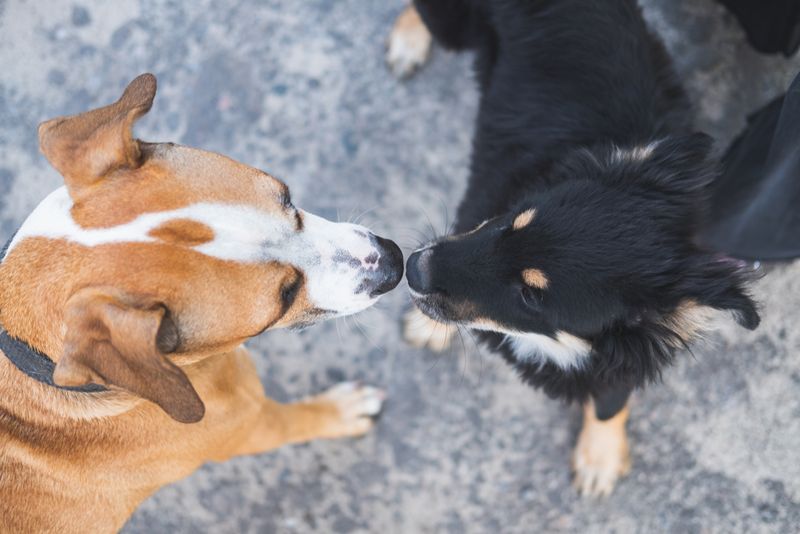
Social interaction fosters a well-adjusted dog, teaching them to be friendly and confident. Encouraging play with other dogs enhances their communication skills and reduces fear or aggression.
Dog parks, social classes, or playdates offer opportunities for positive experiences. Supervise early interactions to ensure safety and comfort.
Socialization should begin in puppyhood but can be beneficial at any stage. Exposing them to different breeds and environments enriches their social life and nurtures an outgoing personality.
Training and Mental Stimulation
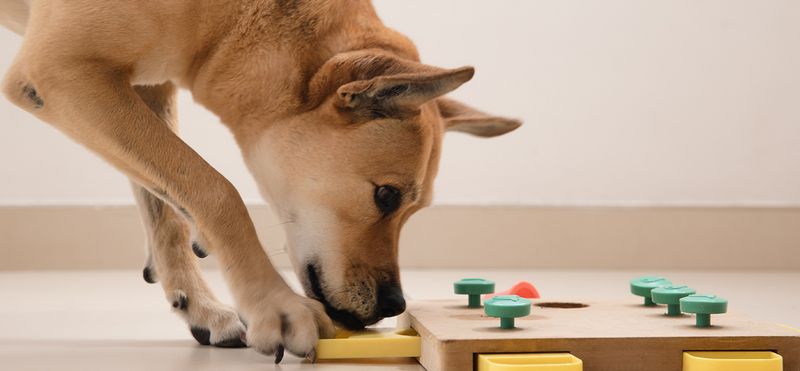
Mental challenges are as crucial as physical activity. Training sharpens a dog’s intelligence, obedience, and creativity. Positive reinforcement techniques build trust and cooperation.
Introduce puzzle toys and interactive games to stimulate their minds. Regular training sessions keep them interested and eager to learn.
Consistency and patience yield the best results. Mental engagement prevents destructive behaviors, as a mentally stimulated dog is a happy and well-behaved companion.
Proper Grooming
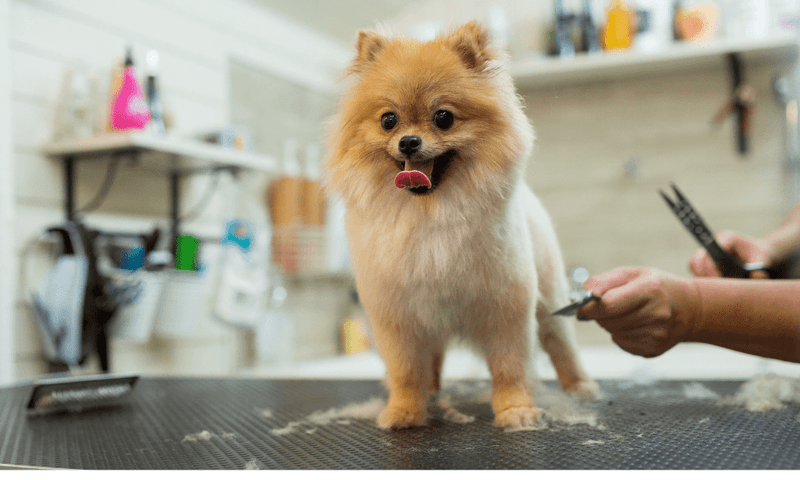
Grooming goes beyond aesthetics; it’s crucial for health. Regular brushing removes loose fur and prevents mats, keeping skin healthy. Bathing eliminates dirt and odors, while nail trimming prevents discomfort.
Examine their ears, eyes, and teeth regularly to spot issues early. Grooming sessions strengthen your bond, as they become moments of trust and relaxation.
Tailor grooming to their coat type and needs. A well-groomed dog feels pampered and confident, reflecting their care in every wag.
Safe Environment

A secure home is vital for a dog’s safety and happiness. Ensure hazards like toxic plants, sharp objects, and loose wires are out of reach.
A fenced yard or secure balcony provides space for exploration without risk. Dog-proofing your home prevents accidents and encourages safe play.
Regularly check for potential dangers, adapting as your dog grows. A safe environment fosters independence, allowing them to explore and enjoy their surroundings worry-free.
Emotional Support and Love

Love and affection are the heart of a happy dog. Emotional support strengthens the bond, providing comfort and security. Spending quality time together, be it a cuddle or an outdoor adventure, enriches their life.
Understand their body language and communicate through touch and voice. Acknowledging their emotions fosters a trusting relationship.
Every dog relishes being cherished, thriving in an environment where love is a constant presence. An emotionally nurtured dog exudes joy and confidence.
Avoiding Overfeeding

Overfeeding is a common mistake that leads to obesity, impacting a dog’s health and lifespan. Understanding portion sizes and nutritional needs is vital.
Regularly consult your vet to adjust their diet as they age, ensuring they receive appropriate calories. Avoid feeding from the table or excessive treats.
A balanced diet tailored to your dog’s unique needs keeps them fit and energetic. A well-regulated diet ensures longevity and vibrant health.
Avoiding Ignoring Behavioral Signs

Behavioral changes often indicate underlying health or emotional issues. Ignoring these signs can lead to more severe problems.
Observe your dog for signs of stress, anxiety, or discomfort. Consult a veterinarian or behaviorist if unusual behaviors persist.
Addressing issues early fosters a happier and healthier pet. Understanding and responding to their needs strengthens your connection, creating a harmonious environment.
Avoiding Skipping Dental Care
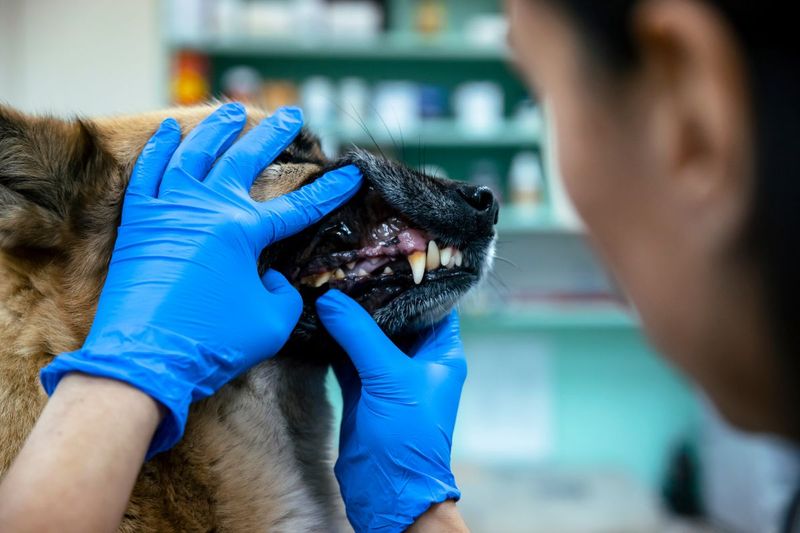
Dental health is often overlooked but crucial for your dog’s well-being. Neglecting oral care can lead to gum disease and tooth loss.
Regular brushing with dog-specific toothpaste and dental check-ups prevent tartar build-up and infections. Provide dental toys to support oral hygiene.
A clean mouth is a gateway to overall health, reflecting your care in your dog’s bright smile and fresh breath.
Avoiding Lack of Training
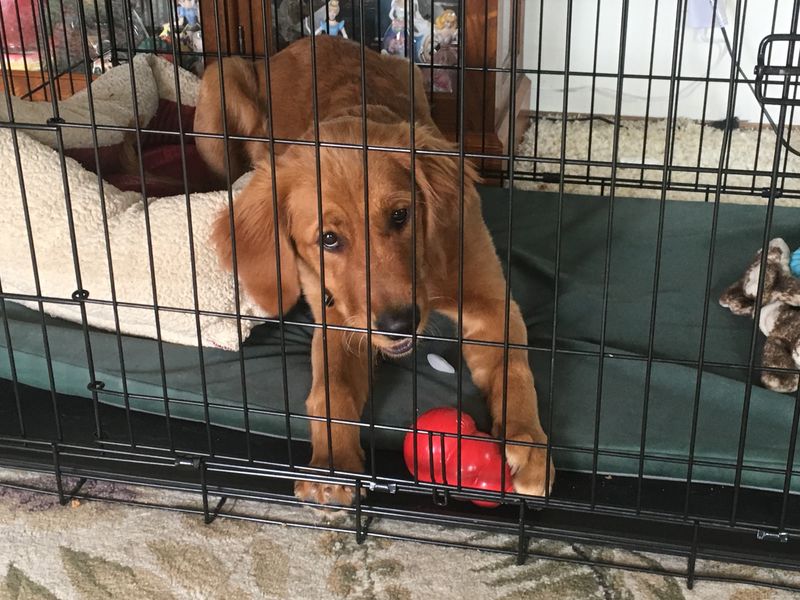
Training is essential for a well-mannered canine. Lack of guidance leads to unwanted behaviors like chewing, barking, or jumping.
Implement consistent training practices using positive reinforcement. Set boundaries and rewards to encourage good behavior.
A trained dog is a joy to have, responding to commands and understanding household rules. Training nurtures a respectful and harmonious relationship.
Avoiding Leaving Dogs Alone for Long Periods

Dogs are social creatures that thrive on companionship. Long periods of isolation lead to anxiety and destructive behavior.
Arrange for dog sitters, daycare, or playdates to ensure social interaction. Provide stimulating toys to keep them engaged when alone.
Balancing alone time with social activities keeps your dog content and healthy, reflecting in their joyful demeanor.
Avoiding Lack of Socialization
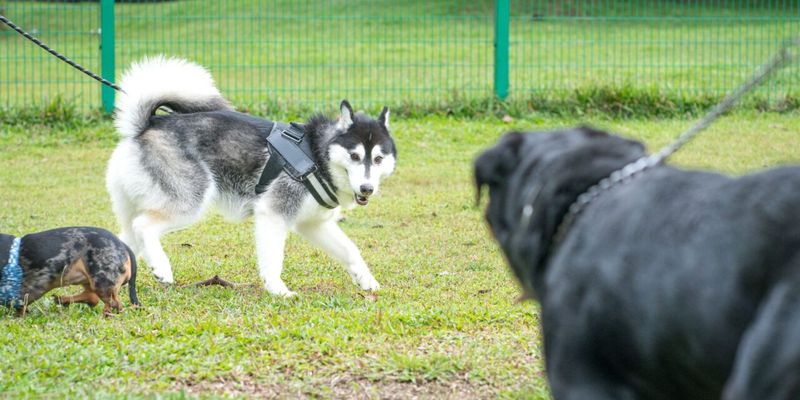
Socialization is key to a confident and friendly dog. Lack of exposure leads to fear and aggression in new situations.
Introduce them to various environments, people, and animals gradually. Positive experiences build trust and curiosity.
Socialized dogs embrace life’s diversity, enjoying encounters with ease and assurance.
Avoiding Ignoring Breed-Specific Needs
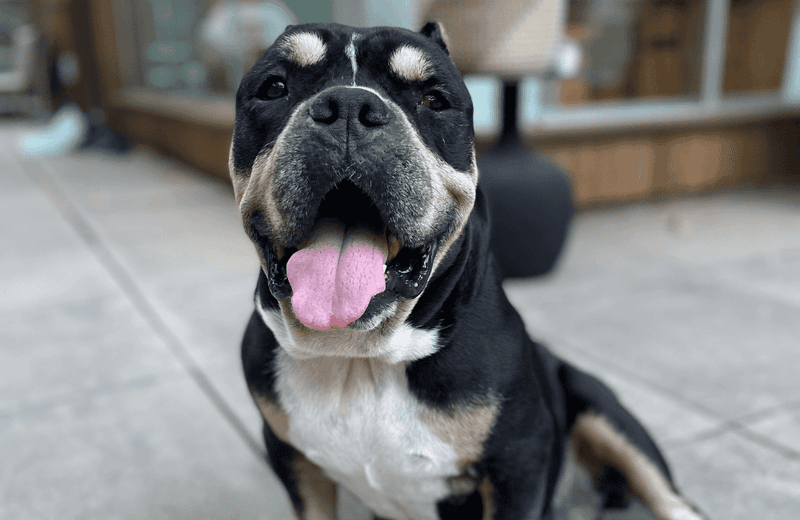
Every dog breed has unique needs and characteristics. Ignoring these specifics leads to unmet needs and potential issues.
Research your dog’s breed to understand their exercise, grooming, and dietary requirements. Tailor their care to match these needs.
Recognizing and addressing breed-specific traits ensures a balanced and fulfilled life for your dog.
Avoiding Overlooking Mental Stimulation
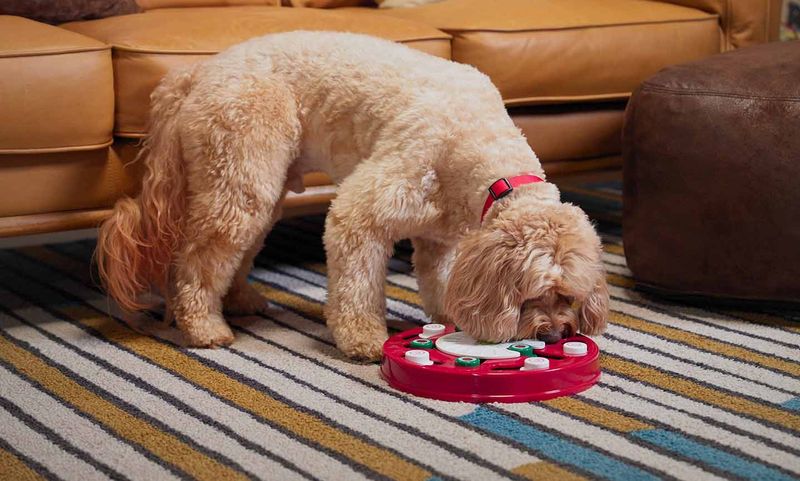
Mental stimulation prevents boredom and fosters a sharp mind. Overlooking this aspect leads to restlessness and undesirable behaviors.
Introduce interactive toys and puzzles that challenge their intellect and provide fulfillment. Regular mental activity keeps your dog curious and lively.
An engaged mind contributes to a harmonious and joyful life, filled with exploration and learning.
Avoiding Disregarding Emotional Well-being

Emotional health is as crucial as physical health. Disregarding it can lead to anxiety and depression.
Spend quality time with your dog, understanding and responding to their emotional cues. Provide a stable and loving environment.
Acknowledge their feelings with affection and support, ensuring they feel secure and cherished. An emotionally balanced dog radiates happiness and serenity.

